VERTEBRIS
lumbar
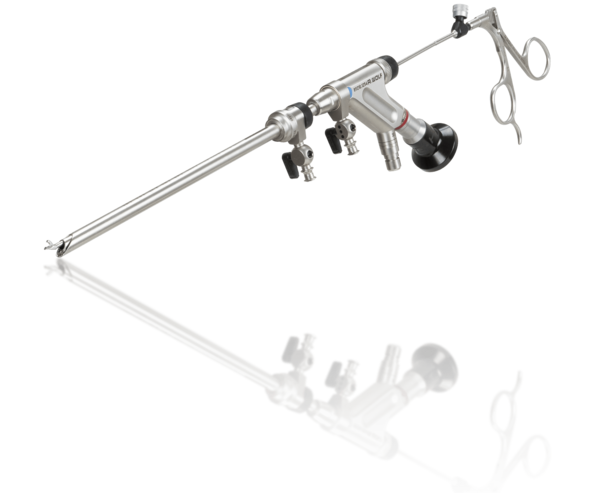
- Full-endoscopic Decompression
Effective for lumbar and thoracic spine pathologies.
- Excellent Optical Properties
Provide clear intraoperative visualization and guide specialized instruments accurately.
- Universal Instrument Design
Allows expansion of treatable indications with additional components.
Full-endoscopic Decompression
Excellent Optical Properties
Universal Instrument Design
Takes the Pressure
The VERTEBRIS lumbar instrument set is tailored for full-endoscopic decompression of the lumbar and thoracic spine. Indications include herniated discs, spinal cysts, and spinal canal stenoses. Procedures can be performed using transforaminal, extraforaminal, or interlaminar approaches.
Techniques
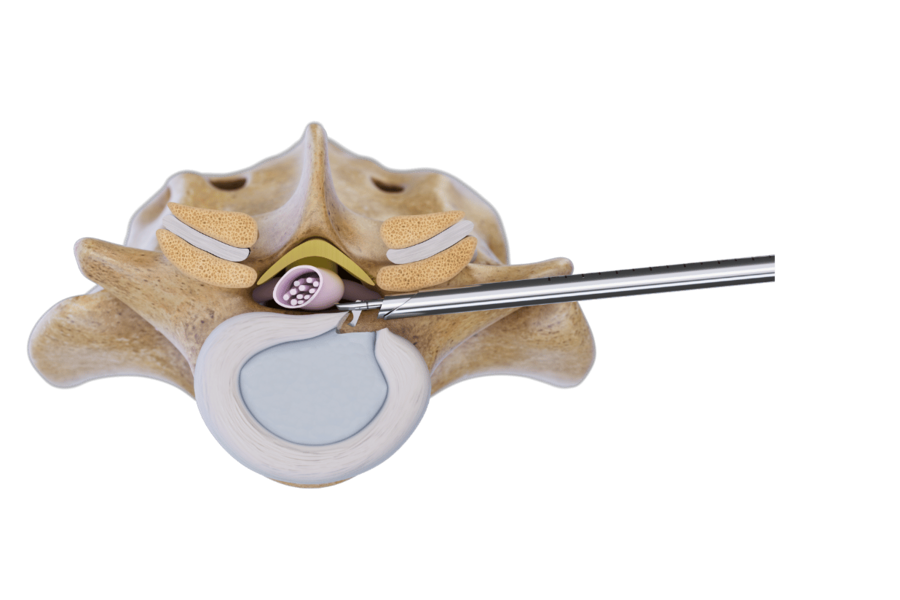
Empower Your Spine Surgery
Foraminal Technique
Empower your spine surgery with the VERTEBRIS transforaminal system. It offers enhanced visualization, precision tissue resection, and improved workflow. Discover how our tools can improve surgical outcomes.
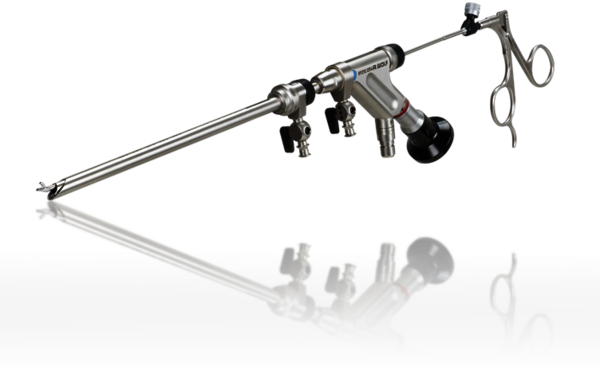
Why VERTEBRIS foraminal?
- High-resolution diskoscopes with working length for posterolateral and lateral transforaminal approach.
- Optimized ratio of large working channel to outside diameter for minimal invasive access and effective operation.
- Optimized fluid management by sophisticated dimensioning of in and outflow - Prevention of neural compression by high pressures of the irrigation fluid.
- Work Sleeves with atraumatic distal design to protect neural structures.
- Stable grasping forceps and punches for effective soft tissue and bone resection with overload protection.
- Endoscopic high-speed drilling system with reusable and disposable tools for mechanical bone and soft tissue resection.
- Tipcontrol instruments for 4 MHz radiofrequency coagulation and ablation.
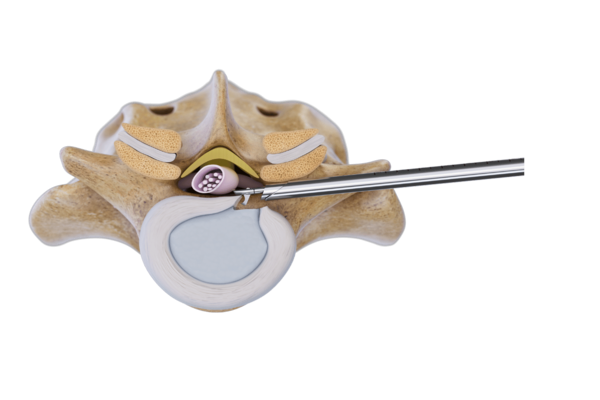
Trans-/extraforaminal Technique
This technique uses the intervertebral foramen for access to the pathology. Entry is guided via X-ray with a puncture cannula, followed by dilation and insertion of the working sleeve.
Surgery is performed under continuous irrigation with high-resolution endoscopic imaging. Specialized instruments like forceps, burrs, and punches ensure effective and precise surgery.
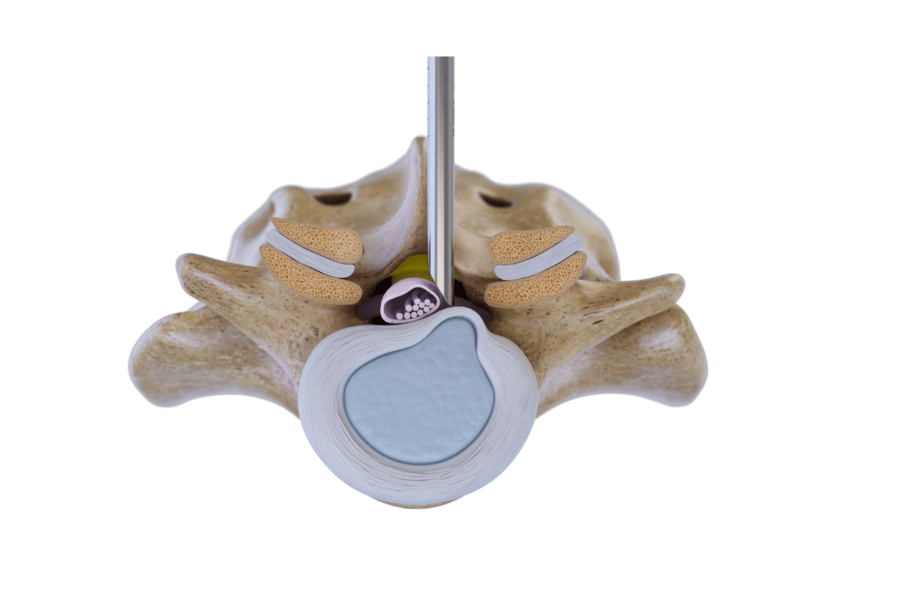
Unparalleled Precision and Minimal Invasiveness
Interlaminar Technique
Our advanced VERTEBRIS interlaminar technique ensures precise, minimally invasive spinal surgery. Discover the benefits of advanced technology and expertise in spinal care.
More information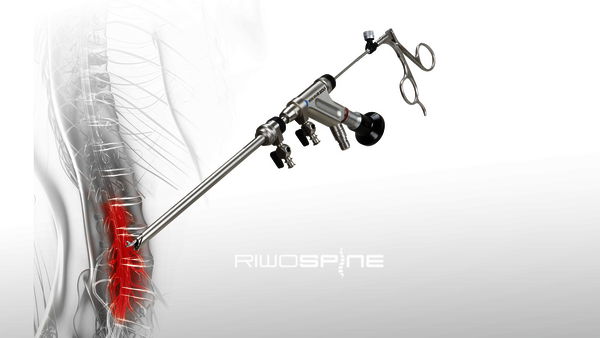
Why VERTEBRIS interlaminar?
- High resolution discoscopes with shorter working length for interlaminar approach.
- Endoscope adapter to control the distance between endoscope and working sleeve for more ergonomic work.
- Optimized ratio of large working channel to outside diameter for minimal invasive access and effective operation.
- Optimized fluid management by optimizing in- and outflow - Prevention of compression of neural structures by high pressures of the irrigation fluid.
- Working Sleeves with atraumatic distal design to protect neural structures.
- Stable grasping forceps and punches with shorter working length for interlaminar approach with overload protection.
- Endoscopic high-speed drill system with reusable and disposable tools for mechanical bone and soft tissue resection for lateral recess stenoses.
- Tipcontrol instruments for 4 MHz radiofrequency coagulation and ablation.
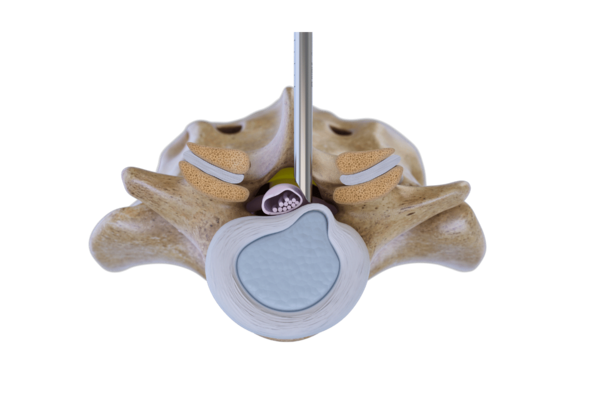
Interlaminar technique
Access to the spinal canal is achieved through the posterior interlaminar window. A dilator is guided to the ligamentum flavum without prior puncture. The working sleeve is then placed, allowing the procedure to be performed with a high-resolution discoscope under continuous irrigation.
The system's components are optimized to minimize trauma and enhance surgical precision. Herniated discs and stenotic bone parts can be effectively resected under a full-endoscopic view.
Note: This video contains medical images and scenes containing blood, which may be disturbing to some viewers.
Note acknowledgedHigh-quality Products
See Matching Systems
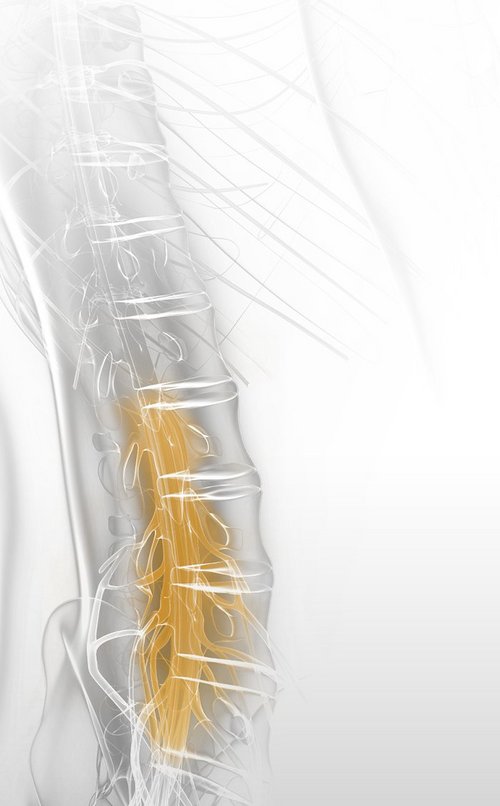

VERTEBRIS
stenosis
Enhanced capabilities through larger telescopes, wider channels, and robust instruments.
More information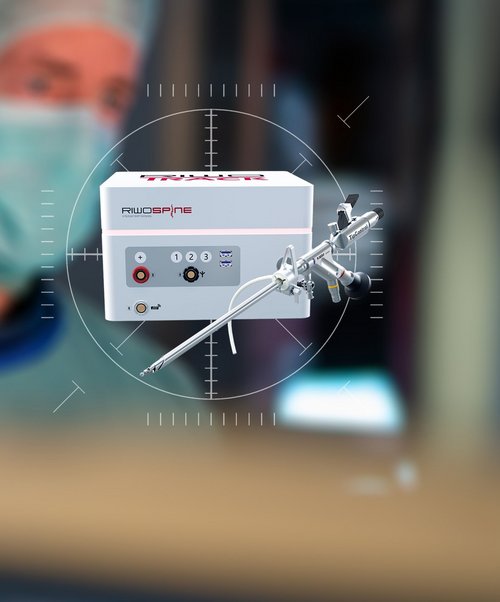
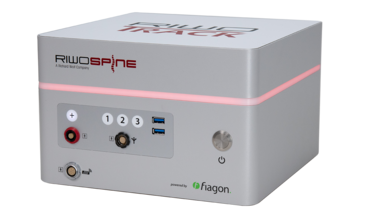
RIWOtrack
tracking system
Simplify your endoscopic instrument guidance at the spine with RIWOtrack electromagnetic navigation.
More information